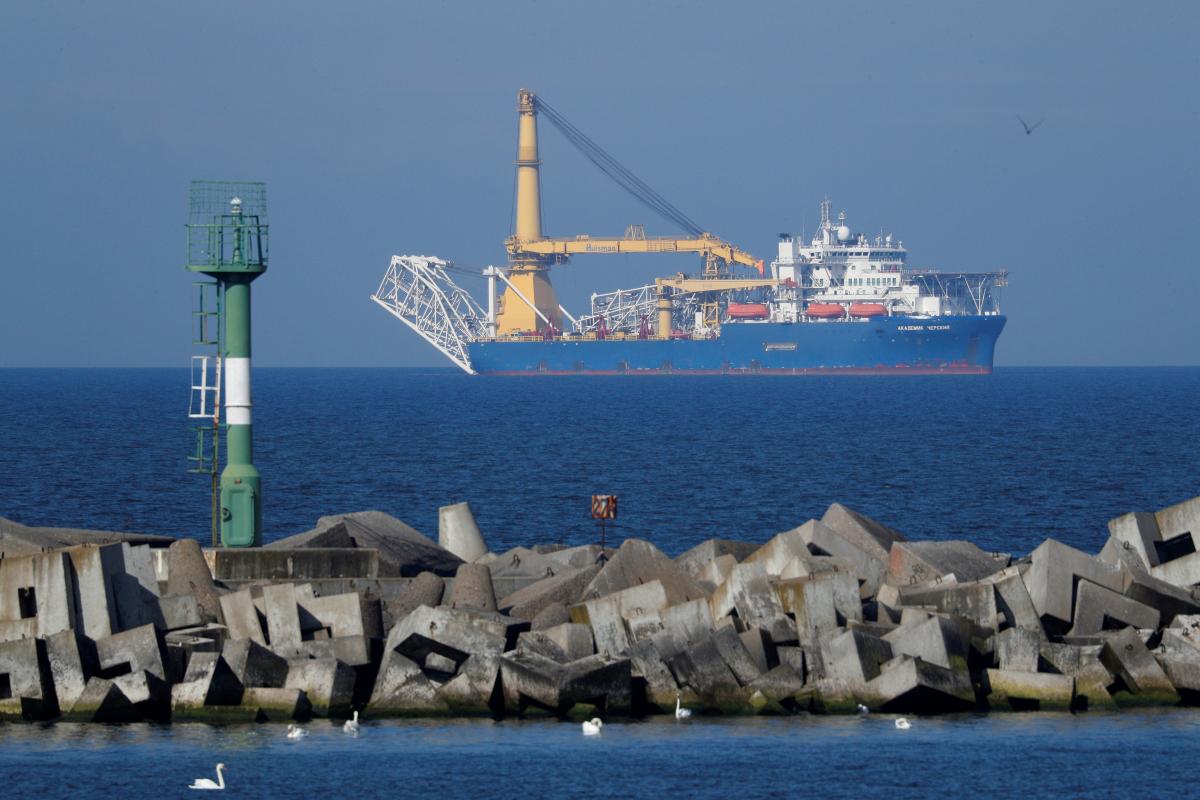
Norway's risk management and quality assurance firm DNV GL has suspended work on the Nord Stream 2 gas pipeline project led by Russia's Gazprom for fear of being sanctioned by the United States, it said on Thursday.
Nord Stream 2 runs alongside the existing Nord Stream pipeline in the Baltic Sea and is designed to boost the amount of Russian gas that can be shipped to Europe without having to go through Ukraine, as reported by Reuters.
Washington wants to stop the project as it fears the pipeline would strengthen Russian President Vladimir Putin's economic and political influence over Europe. The United States also wants to boost its own gas exports to the continent.
DNV GL said the United States had issued new guidelines for its Protecting Europe's Energy Security Act (PEESA), which targets the Nord Stream 2 project.
"Under these new guidelines, we find DNV GL's verification activities linked to vessels with equipment serving the Nord Stream 2 project to be sanctionable. DNV GL has therefore ceased delivery of services that may fall under the scope of PEESA," DNV GL said in emailed comments.
DNV GL said its work involved reviewing documentation and observing construction activities to ensure compliance with its standards. This included monitoring the testing and preparation of equipment used by vessels to install the pipeline.
It was not immediately clear what impact DNV GL's move would have on the project. Construction of the 1,230 km pipeline is nearly finished but a final stretch of about 120 km still needs to be laid in Danish waters.
Read alsoInglorious end of Nord Stream 2 would herald string of defeats for Putin's RussiaWork was halted in December when pipe-laying company Swiss-Dutch Allseas suspended operations after U.S. sanctions targeted companies providing vessels to lay the pipes.
Nord Stream 2 declined to comment on the potential impact of the Norwegian company's decision saying it was not in a position to disclose commercial information.
"It is up to governments and the European Commission to protect European companies from illegal extraterritorial sanctions," Nord Stream 2 said.
Nord Stream 2: Background
The Nord Stream 2 project envisages the construction and operation of two gas pipeline branches with a total throughput capacity of 55 billion cubic meters of natural gas per year from the coast of Russia through the Baltic Sea to Germany. It should connect Russia's Ust-Lug and Germany's Greifswald. This new pipeline bypassing Ukraine is to be built next to the existing Nord Stream 1 pipeline.
The construction of the pipeline was expected to be completed before the end of 2019.
The pipeline will be 1,220 km long. The project is being implemented by Russia's Gazprom in alliance with European companies – ENGIE, OMV, Royal Dutch Shell, Uniper, and Wintershall. Ukraine stands against the construction of Nord Stream 2 as it will most likely lose its status of a gas transit country, while its potential revenue losses are estimated at US$3 billion annually. The project is also highly criticized by the U.S., Poland, and the Baltic States.
On July 15, U.S. Secretary of State Mike Pompeo warned that the participants in the Nord Stream 2 project would fall under the Countering America's Adversaries Through Sanctions Act, CAATSA.
Read alsoU.S. government designates companies subject to sanctions over Nord Stream 2 – mediaOn July 16, the U.S. recommended that investment companies reconsider their participation in the Nord Stream 2 gas pipeline project.
On July 23, the U.S. Senate approved the draft National Defense Authorization Act for Fiscal Year 2021, which, among other things, contains additional sanctions against the companies involved in the construction of Nord Stream 2.
Ukraine's Foreign Ministry welcomed the United States' readiness to impose sanctions on investment companies involved in the completion of the project.

